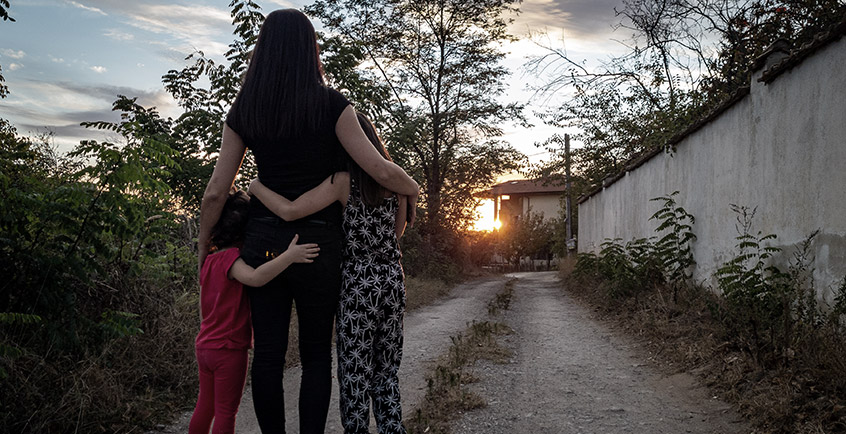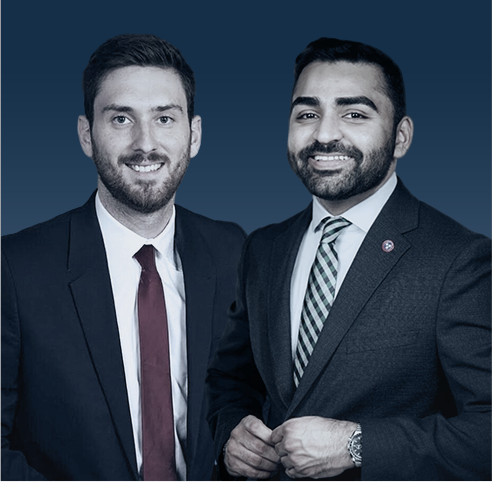VAWA | ABP Law

Immigration relief is available to family members of abusive U.S. citizens and lawful permanent residents. U.S. immigration laws specifically protect spouses, children, and parents who have suffered abuse from their U.S. citizen or permanent resident family members, providing an opportunity to apply for legal status independently and confidentially through the Violence Against Women Act (VAWA). This form of immigration relief offers safety, independence, and stability to survivors of abuse, regardless of gender or sexual orientation.
Understanding VAWA Self-Petitions
Congress enacted the Violence Against Women Act in 1994 to help protect immigrant survivors of domestic abuse. Under VAWA, individuals experiencing domestic violence can self-petition for lawful immigration status without requiring the consent or knowledge of their abuser.
In typical immigration cases, a family member must sponsor the immigrant seeking legal status, thus maintaining control over the immigration process. VAWA removes this barrier, empowering abuse survivors to independently seek and secure immigration relief.
Despite the name, VAWA applies equally to all genders. Many individuals, including men and children, successfully obtain immigration relief through VAWA after experiencing abuse by a spouse, parent, or child who is a U.S. citizen or permanent resident.
Eligibility Requirements for VAWA
To self-petition under VAWA, applicants must meet several eligibility criteria:
- Establish a familial relationship with the abuser (spouse, parent, or child). If applying based on a marriage, the petition must typically be filed within two years following the divorce or separation.
- Demonstrate having suffered battery or extreme cruelty.
- Show good moral character, generally meaning no serious criminal history.
Abuse can encompass physical, emotional, psychological, financial, or other forms of harm. At ABP LAW, our attorneys work closely with clients to gather compelling evidence and present the strongest possible case.
Including Family Members in Your VAWA Petition
If you are filing a VAWA petition due to spousal or parental abuse, you may include certain family members:
- If abused by a spouse, you may include unmarried children under the age of 21.
- If abused by a parent, you may similarly include your unmarried siblings under the age of 21.
- If abused by your adult child, unfortunately, additional family members cannot be included in your petition.
Applying for Permanent Residency (Green Card)
Successful VAWA self-petitioners are eligible to apply for permanent residency. Depending on your relationship to your abuser and their immigration status, you may file for a green card concurrently with your VAWA petition or after approval. Spouses of U.S. citizens can usually apply simultaneously.
Once granted permanent residency, you will gain many rights similar to a U.S. citizen, including the opportunity to apply for citizenship after meeting residency and other requirements.
Employment Authorization Through VAWA
Although filing a VAWA self-petition does not automatically grant employment authorization, approved self-petitioners are typically eligible to receive an Employment Authorization Document (EAD). This allows you to legally work and obtain a Social Security number and driver’s license.
Important Highlights of VAWA Relief
- Self-Petitioning: Victims can independently file Form I-360 without their abuser’s involvement.
- Credible Evidence: Evidence of abuse can include medical records, police reports, affidavits, or even detailed personal statements. Our attorneys can help determine the most effective evidence for your case.
- Confidentiality: VAWA petitions are confidential, safeguarding applicants from their abuser’s interference.
- Access to Benefits: Successful applicants may qualify for work authorization, public benefits, and additional protections.
ABP Law is Here to Support You
At ABP LAW, we recognize the urgency, sensitivity, and complexity surrounding domestic abuse and immigration. Our dedicated legal team in Tennessee is committed to providing compassionate and strategic representation to empower survivors through the VAWA process. Time is critical in filing VAWA self-petitions. If you or a loved one is experiencing abuse, contact ABP LAW immediately. We will confidentially review your situation, advise you of your options, and help you pursue independence, safety, and legal stability.
Need Help?






